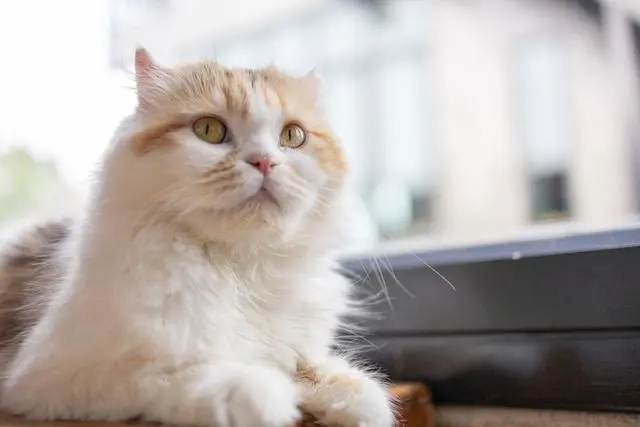Scottish Fold cats, known for their distinctive folded ears and charming personalities, have gained immense popularity among cat lovers. However, potential owners often hesitate due to various concerns regarding their health and welfare. In this article, we will explore the defects associated with Scottish Fold cats, helping you understand why some pet owners choose to steer clear of this breed.

1. The Genetic Mutation Behind the Folded Ears
Understanding the Genetic Basis of Scottish Fold Ears
The folded ears of Scottish Folds are a result of a genetic mutation affecting cartilage development. While this unique feature is appealing, it comes with significant implications:
- Health Issues: The same gene that causes the ear fold is linked to cartilage abnormalities throughout the body. This can lead to various health problems beyond the ears.
- Potential Breeding Problems: Breeding Scottish Folds can be problematic as breeding two Fold cats together increases the risk of severe genetic issues, including skeletal deformities.
Understanding the genetic basis of their appearance is crucial for any prospective owner.
2. Common Health Problems in Scottish Fold Cats
Health Concerns Associated with Scottish Folds
Scottish Folds are predisposed to several health issues, primarily due to their unique genetic makeup. Common health problems include:
- Osteochondrodysplasia: This condition affects bone and cartilage development, leading to painful joint issues and mobility problems.
- Arthritis: Many Scottish Folds experience arthritis at a young age, impacting their quality of life and requiring ongoing management.
- Heart Disease: Some Scottish Folds are prone to hypertrophic cardiomyopathy (HCM), a heart condition that can lead to serious complications if left untreated.
These health concerns raise significant flags for potential cat owners.
3. The Impact of Genetic Conditions on Lifespan
Lifespan and Health Considerations for Scottish Folds
Due to their genetic predispositions, Scottish Folds often face a shorter lifespan compared to other cat breeds:
- Reduced Lifespan: Many Scottish Folds may live only 12-15 years, which is shorter than the average lifespan of other cats, primarily due to their health issues.
- Increased Vet Visits: The need for frequent veterinary care can be a burden for owners, both emotionally and financially.
This shortened lifespan and potential for frequent health problems can deter many from adopting a Scottish Fold.
4. Behavioral Concerns in Scottish Fold Cats
Understanding the Behavioral Traits of Scottish Folds
In addition to physical health issues, Scottish Folds may exhibit certain behavioral traits that could be concerning:
- Lethargy: Due to pain from their genetic conditions, some Scottish Folds may be less active, impacting their playful nature.
- Socialization Challenges: Some individuals may have difficulty adapting to new environments or social interactions, leading to stress and anxiety.
Understanding these behavioral traits is essential for ensuring a good match between the cat and potential owners.
5. Ethical Considerations in Breeding
The Ethics of Breeding Scottish Fold Cats
The breeding practices associated with Scottish Folds raise ethical concerns for many animal lovers:
- Health Risks of Inbreeding: The popularity of the breed often leads to inbreeding, which can exacerbate genetic health issues.
- Promotion of Genetic Disorders: By choosing to breed Scottish Folds for their appearance, breeders may prioritize aesthetics over the health and welfare of the animals.
Potential cat owners often reflect on these ethical considerations when choosing to adopt a Scottish Fold.
6. Grooming and Maintenance Needs
Grooming Requirements for Scottish Fold Cats
While not unique to Scottish Folds, grooming can become a consideration for potential owners:
- Coat Type: Depending on whether the Scottish Fold is long-haired or short-haired, grooming needs can vary. Long-haired Folds require regular brushing to prevent matting.
- Ear Care: The folded ears may trap moisture and debris, necessitating regular cleaning to prevent infections.
Understanding grooming needs helps owners prepare for the responsibilities of cat ownership.
7. Finding a Responsible Breeder
Tips for Choosing a Reputable Scottish Fold Breeder
If you decide to adopt a Scottish Fold despite the concerns, it’s crucial to find a responsible breeder:
- Health Testing: Ensure the breeder conducts health tests for common genetic conditions and provides documentation.
- Transparency: A good breeder should be willing to share information about the health history of their cats and the steps they take to breed responsibly.
- Home Visits: Consider visiting the breeder’s facility to assess the living conditions and the care provided to the cats.
Taking these steps can help ensure you adopt a healthier and happier Scottish Fold.
8. Alternatives to Scottish Folds
Considering Other Breeds with Fewer Health Issues
For those concerned about the defects associated with Scottish Folds, there are several alternatives:
- British Shorthair: Similar in appearance but without the genetic issues associated with folded ears.
- American Shorthair: Known for their robust health and friendly nature, making them a great family pet.
Exploring these alternatives can provide you with options that suit your preferences without the associated health risks.
9. Conclusion: Weighing the Pros and Cons
In summary, while Scottish Fold cats are undeniably adorable, the defects and health concerns associated with this breed warrant careful consideration. From genetic issues to ethical breeding practices, potential cat owners must weigh the benefits against the risks before making a decision. If you choose to adopt a Scottish Fold, ensuring responsible breeding practices and being aware of their specific needs is crucial for their well-being.

Comments (0)